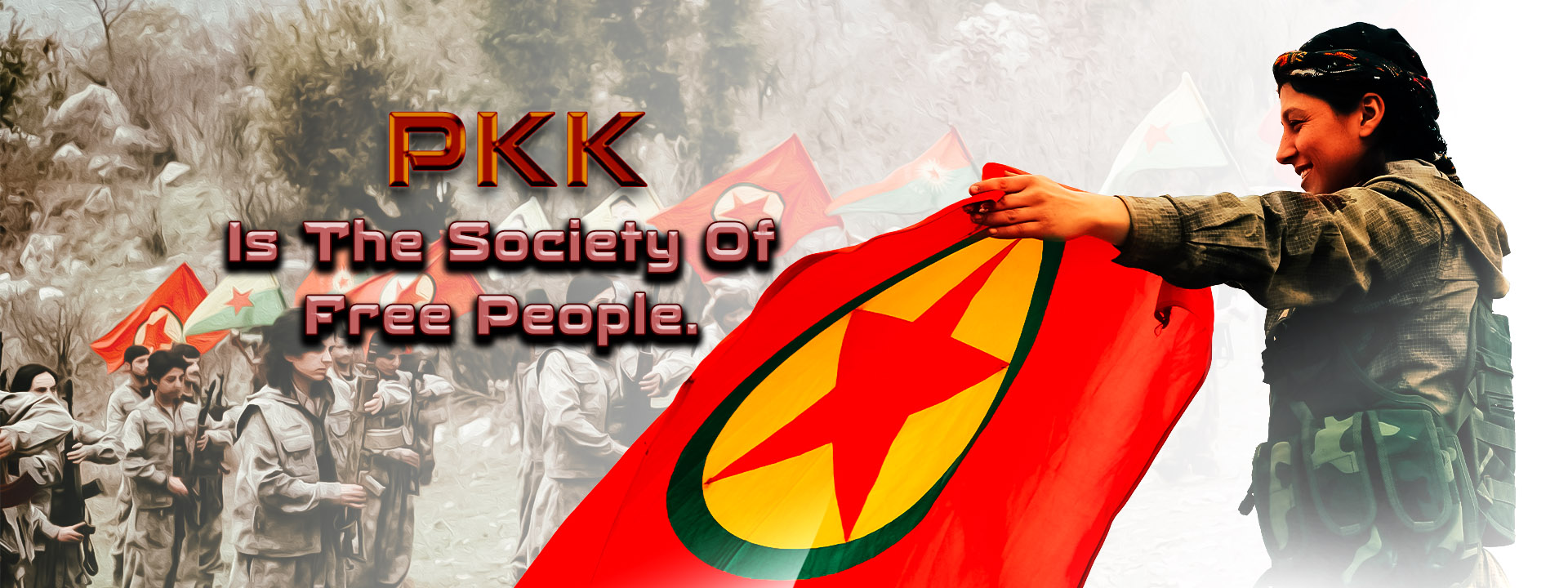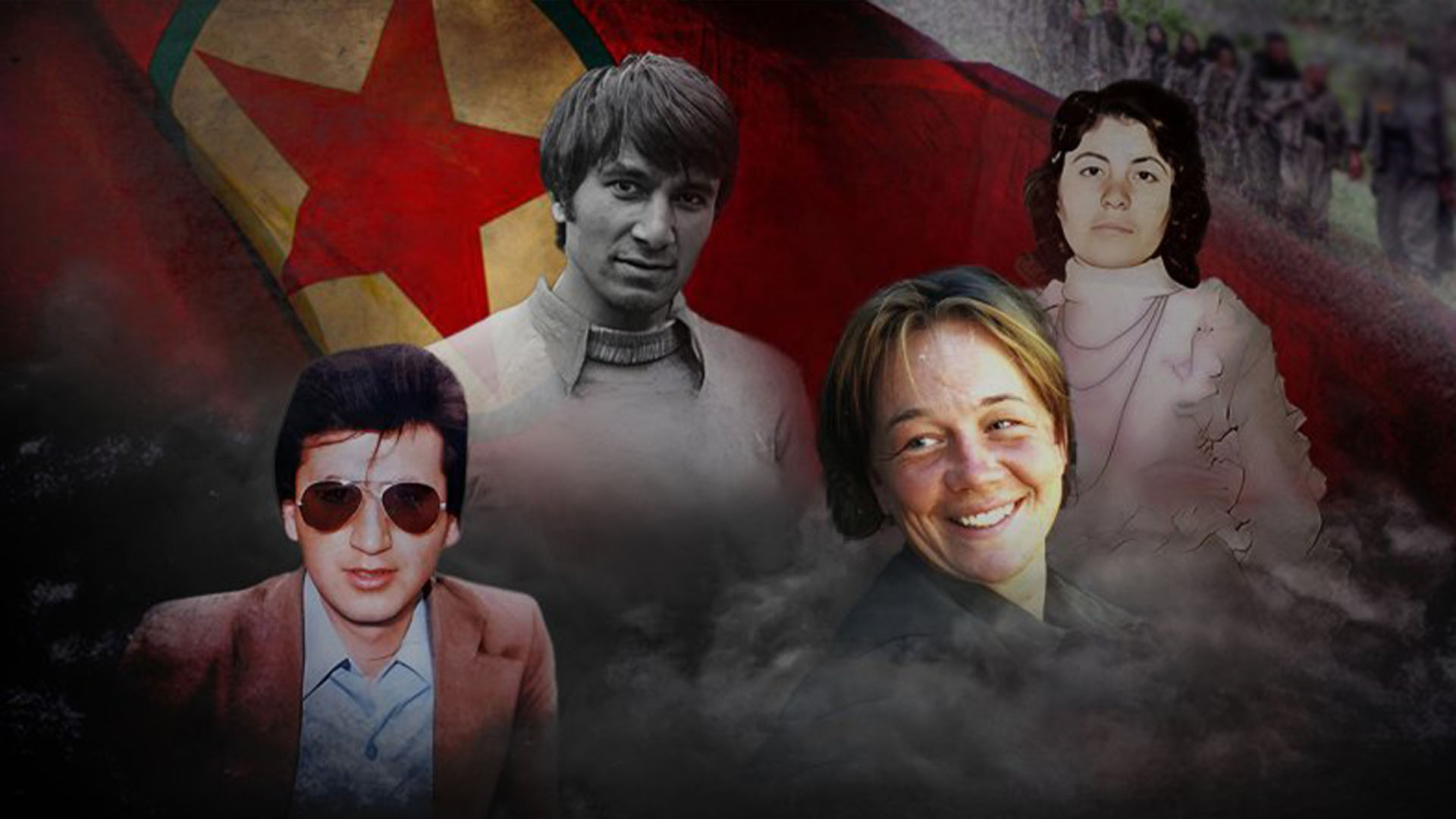The Kurdistan Workers' Party has become one of the international movements in the Middle East and the world, and today there are many different nationalities in its ranks who are struggling for freedom.
The Kurdistan Workers' Party was founded on November 27, 1978, under the leadership of Leader Abdullah Ocalan in the town of Lice, affiliated with the city of Amed. On his 46th anniversary, we remember some of the fighters, revolutionaries and early martyrs of the Kurdistan Workers' Party.
In 1950, near the shores of the Black Sea in the Ulubei region of the Turkish city of Ordu, Haki Karer was born into a family of Turkish origin. He studied primary, middle and high school in Ulubei, then moved to Ankara to study between 1971-1972, at Ankara University, Faculty of Science, Department of Mathematics.
Karer became a rising star in the college and became known as one of the prominent revolutionary fighters.
Mahir Çayan and his comrades were subjected to a terrible massacre in "Kızıldere", where Leader Abdullah Ocalan took the initiative to propose "boycotting university lectures", on April 7, 1972. The leader was among many students who were arrested due to boycotting university lectures, and he was sent to Mamak Prison where he spent 7 months at the age of 23.
After Leader Abdullah Ocalan was released in 1972, he did not have a house and looked for a house to shelter him. One of the leader's comrades told him that the house where the revolutionaries Haki Karer and Kemal Pîr were staying could accommodate him and they would accept him. The leader stayed with them in the fall of 1972 and this acquaintance turned into friendship and the beginning of the revolutionary struggle in Kurdistan.
In the winter of 1973, Leader Abdullah Ocalan, together with the revolutionaries Haki Karer and Kemal, came to the conclusion that “Kurdistan is occupied city,” and when they heard this sentence for the first time, they joined this truth. Meanwhile, the first groups around the thesis of “Kurdistan is a colony” began to gather in 1973, and Karer became Leader Abdullah Ocalan’s closest friend, and actively participated in organizing the revolutionary youth of the Ankara Democratic Association for Higher Education (ADYÖD). The revolutionary Haki Karer, who Leader Abdullah Ocalan called "my hidden soul", took his place in the group that later became known as the "Apocian Group". Qarar fought a distinguished struggle and played an effective role in the revolutionary work, especially in the years 1973-1974.
The first practical steps began to be taken in 1975, after the "Dikmen" meeting was held, which was the first official meeting attended by Leader Abdullah Ocalan, and Haki Karer was elected a member of the group's management as an assistant to the leader.
He made the decision to return to Kurdistan in early 1976, in compliance with the decision of the group and Leader Abdullah Ocalan. Qarar began his revolutionary activity in the cities of Northern Kurdistan (Ile, Akre, Adana, Dilok), and during this short period of his leadership of the struggle in Kurdistan, the Kurdistan Revolutionary Group expanded.
At the same time, Alaeddin Kaban founded an organization called "Beş Parçaçilar" ("Five Parts") under the name of the Red Star, with the aim of pursuing and spying on the new revolutionaries of Kurdistan. Alaeddin Kaban, who was a spy among the ranks of the left in Turkey during the March 12 period, founded an organization called "Red Star", whose members were trained as agents by Turkish Intelligence (MIT) and whose mission was to strike the "Apocist group". They closely monitored the group's leader and all its members. When Haki Karer went to Adana and worked with the revolutionary forces there, his encounter with Alaeddin was not a coincidence, but was arranged by the MIT. Haki Karer moved to Dilok, Alaeddin followed him, provoked him, and invited him to a café on May 18, 1977. After he attended the café, he was attacked using pistols, and he was martyred due to his injuries.
Leader Abdullah Ocalan stated in his analysis: " The killing of the Comrade is an attack to prevent us from establishing our presence there."
Qarar was the first martyr of the party. Therefore, in order to avenge Hakki, the decision was made to establish the party, and on October 27, 1978, the first conference was held and the Kurdistan Workers' Party was founded in the Lice region of Amed.
The first revenge was carried out by a unit led by Martyr Kemal, who killed Alaeddin Kaban.
"Our revenge for our comrade will be by establishing an organized movement and a political party that leads the masses of the toiling peoples towards freedom, achieving victory over the enemy and liberating Kurdistan," Leader Ocalan said.
Aziz Arab, the first Arab martyr in the Kurdistan Freedom Movement
Among the international figures who joined the Kurdistan Freedom Movement is the martyr Aziz Arab, real name Nader Sheikh Hassan, born in the village of Maryamin in the currently occupied Afrin canton in 1964.
Aziz Arab is the first Arab Syrian martyr in the ranks of the Kurdistan Workers' Party, and he is the owner of the famous saying (I will die, I am an Arab by birth, and long live the brotherhood of the peoples of the Middle East).
Arab had the honor of joining the ranks of the revolution in Kurdistan in 1983, as the first Arab in the ranks of the Kurdistan Workers' Party, inspired by the ideas of Leader Abdullah Ocalan for the unity of the destiny of the peoples of the Middle East, he received his training in Lebanon, and struggled in mountains of Hakkari.
Martyr Aziz says in one of his memoirs: “I have been in Kurdistan for about a year, and I have learned a lot from the fighters of the Kurdistan Liberation Movement. I have also witnessed many revolutionary developments. Despite the limited capabilities, the heroic fighters in the ranks of the Kurdistan Freedom Movement were able to expel the Turkish soldiers.
Arab martyred on April 17, 1986, and remained like a shining star in the high mountains of Hakkari.
Besê Anuş was born in 1960 in the village of Ismaburu in the Pazarcakh district of Maraş, and studied until the first year of high school.
Following the declaration of the establishment of the Kurdistan Workers' Party in 1978, the occupying Turkish state pursued a scorched earth policy in Kurdistan, and committed a horrific massacre in the city of Maraş. This was a major motive for Besê, who witnessed the Maraş massacre to fight for freedom and join a small group of guerrillas inside the cities.
The revolutionary Besê is one of the most prominent figures in the history of the Kurdish people's struggle. She moved from one village to another before joining the ranks of the guerrilla fighters. She played a leading role in pushing the Kurdish people to preserve their identity, homeland and language in Maraş.
During the fascist military coup on September 12, 1980, the revolutionary Besi was among the activists who were severely tortured. One of the executioners described Besi’s situation as follows: “We tortured her severely, but we could not force her to confess anything, we could not even make her scream in pain.”
The revolutionary Besê Anuş says: “I am absolutely certain that Kurdistan will give birth to hundreds of women activists who will carry my weapons and fight in the mountains of Kurdistan after my martyrdom.”
Besê Anuş was martyred in a battle against Turkish soldiers near the village of Musular on March 17, 1981, and at the same time, she became the first martyr of the PKK movement.
Ronahi, real name (Andrea Wolf) comes from the German city of Munich, was born on January 15, 1965 in a socialist family, and despite her young age she became a member of the youth branches of the German Social Democratic Party in 1980, and participated with her family in anti-regime marches. Andrea and her friends later founded an organization called Freedom Time 81. She later became a target of the German police and was arrested dozens of times, but despite the hardships, Andrea did not give up the struggle and continued her revolutionary work until the nineties.
Andrea Wolf, who was closely interested in global revolutionary movements, went to Kurdistan in 1997 and joined the ranks of the guerrillas, and in Kurdistan, she called herself (Ronahi). She chose this name in imitation of the martyr Ronahi (Badriye Tash) who set herself on fire, on Newroz 1994, in protest against the pressures and practices of the German government against the Kurds.
" Although I come from a different culture here, I have never felt like a stranger. I will live in these lands as a German revolutionary. I will defend my lands with the strength I receive from here and I will use all my strength for this. I believe I will succeed.” The revolutionary Andrea wrote in her diary in the mountains of Kurdistan on May 1, 1997: “We should have stopped the war machines in the cities, but that did not happen. "They left us no other way out but the mountains."
Andrea was martyred on October 23, 1998, during clashes with the Turkish state in the Van region. Her martyrdom led to a crisis between Turkey and Germany. Her remains were not found for years in the village of Dokmelitas in the Şaks region in 2011.
Andrea became a symbol and pioneer of the international struggle. There are German, British, Latin American and many other international revolutionaries fighting for the freedom of Kurdistan under the leadership of the Kurdistan Workers' Party.




